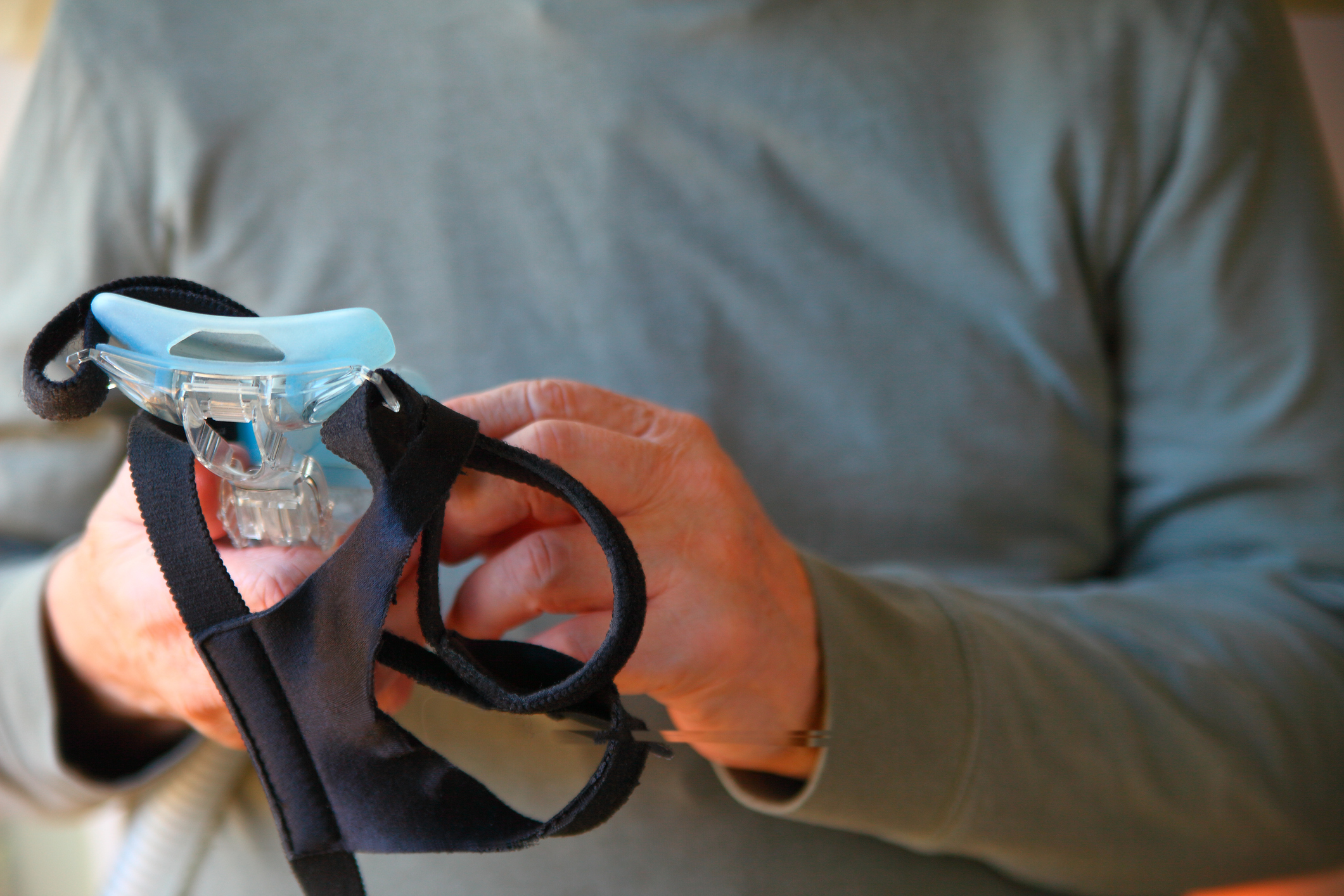Get Easy Health Digest™ in your inbox and don’t miss a thing when you subscribe today. Plus, get the free bonus report, Mother Nature’s Tips, Tricks and Remedies for Cholesterol, Blood Pressure & Blood Sugar as my way of saying welcome to the community!
The sudden, deadly potential of sleep apnea

If you’re one of the estimated 1 billion people worldwide with obstructive sleep apnea (OSA), you already know it can disrupt your life. As your airway gets closed off by soft tissue, you start snoring heavily. Then you stop breathing and wake up gasping for air. This can happen as many as 30 times in one hour, leaving you exhausted and irritable the next morning.
Chronic OSA can raise your risk of a host of heart problems like high blood pressure, stroke, heart failure, coronary artery disease and irregular heartbeat.
People with OSA are also more likely to develop metabolic syndrome and type 2 diabetes. And, as Penn State researchers have found, they are more susceptible to a sudden and early death…
How OSA influences death risk
According to a recent study, people with OSA are twice as likely to die suddenly from all causes as those without the disorder. The study also confirms they’re at higher risk of developing certain cardiovascular conditions like hypertension, coronary artery disease and congestive heart failure.
The researchers reviewed sleep apnea-related studies published through January 2020 that involved more than 42,000 patients from around the world. Their review found people with OSA have a higher risk of dying suddenly from all causes, including cardiovascular death, and that these risks increase with age.
The study found a link between OSA and several cardiovascular issues, including hypertension, coronary artery disease and congestive heart failure.
OSA causes a lack of available oxygen to cells, or oxidative stress, which can throw off the balance of antioxidants in the body. Over time, this imbalance damages cells, potentially speeding up the aging process and leading to a variety of health problems.
The researchers say many OSA patients don’t consider the potentially deadly consequences of the condition, and that future studies are needed to identify treatments and interventions that can improve their survival.
“This study highlights the importance of appropriate prevention measures to reduce the incidence of OSA and OSA-related sudden death,” says study co-author Emily Heilbrunn. “Providing accessible and affordable treatments for populations with OSA may ultimately reduce adverse health outcomes for these individuals.”
The study did have limitations, including a lack of data from Africa or Antarctica. Researchers say future studies should examine the link between OSA and death in the populations not represented in the study.
Going beyond CPAP
If you have OSA, you may benefit from a continuous positive airway pressure (CPAP) machine, which blows compressed air into your airway to keep it open while you sleep. But CPAP machines can be noisy, uncomfortable and difficult to keep clean. So if your OSA is mild, you may want to explore other ways to address the condition.
We’ve written before about lifestyle changes that can help relieve OSA. Research has shown that a modest increase in daily exercise can reduce the severity of OSA. It also helps to lose weight if you’re overweight; avoid alcohol, tranquilizers and sleeping pills; and sleep on your side or stomach instead of your back.
Another study found that five minutes of daily Inspiratory Muscle Strength Training (IMST) helped to improve OSA and lower blood pressure. The exercise involves breathing in vigorously through a hand-held device known as an inspiratory muscle trainer that helps to strengthen the muscles you use to inhale.
One step you may not have considered is putting an air purifier in your bedroom. Research has shown that even a small number of polluting particles in the air can raise the risk of sleep apnea by an astonishing 60 percent.
Editor’s note: What do you really know about stroke? The truth is, only 10% of stroke survivors recover almost completely, and all doctors can offer is what to do after a stroke occurs. That’s unacceptable considering 80% of strokes are preventable! Click here to discover how to escape The Stroke Syndrome: 5 Signs it’s Stalking You — Plus the Hidden Causes and Preventive Measures You’ve Never Heard About!
Sources:
Sleep apnea increases risk of sudden death, cardiovascular conditions — Penn State Health
Sudden death in individuals with obstructive sleep apnoea: a systematic review and meta-analysis — BMJ Open Respiratory Research
Can Sleep Apnea Cause Death? — Sleep Care Online
Research: Air Purifiers May Help to Relieve Sleep Apnea Symptoms — Globe Newswire













